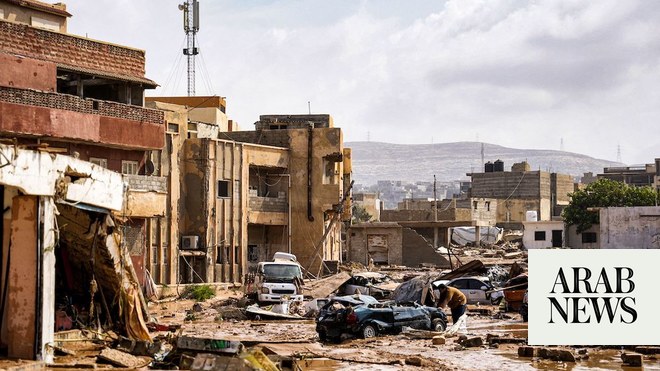
In a recent interview former Rear Adm. Cihat Yayci, the architect of Turkey’s policies on maritime borders with Libya in the Mediterranean Sea, also considered the mastermind of the Libyan-Turkish maritime agreement, said that Israel is Turkey’s neighbor in the Eastern Med and so Ankara must reach a maritime agreement with Tel Aviv, just as it did with Libya.
The months-long normalization efforts between Ankara and Tel Aviv have started to bear fruit, including the appointment of ambassadors and high-level visits by officials from the two countries.
On Thursday, Israeli Defense Minister Benny Gantz met Turkish leader Recep Tayyip Erdogan at the presidential residence in Ankara. During the first official visit to Turkey by an Israeli defense chief in more than a decade, Gantz also met his Turkish counterpart, Hulusi Akar.
As a sign of the blossoming ties between their nations, they discussed several opportunities for cooperation. On Wednesday, the day before Gantz traveled to Turkey, reports suggested that the trip would probably not include the signing of any weapons deals. This was viewed as a very obvious Israeli move designed to avoid antagonizing Greece and the Greek Cypriot administration.
During the past decade when relations with Ankara have been strained, Tel Aviv’s ties with Athens and Nicosia have improved dramatically and they have enhanced their cooperation in the diplomatic, economic and security realms.
During the tensions in the Eastern Mediterranean, Israel continued to develop its relations with Greece at the expense of Turkey. In 2020, Israel, Greece and the Greek Cypriot administration signed the East Med deal for a pipeline to ship gas from the Eastern Mediterranean to Europe, triggering objections from Ankara.
Ahead of his trip to Turkey, Gantz was scheduled to visit Greece last Friday. However, the Greek media, citing Israeli sources, reported that the planned visit was canceled because of reasons that required the minister to remain in Israel. No further explanation was given.
Gantz had been expected to accompany his Greek counterpart, Nikos Panagiotopoulos, on a visit to the southern Peloponnesian city of Kalamata, which hosts a new training center for Hellenic Air Force pilots.
Both Greek and Israeli authorities have reiterated that Greek-Israeli relations are stable and important to both sides. Ahead of his landmark visit to Turkey in March this year, Israeli President Isaac Herzog visited Greece in a move viewed as a reassurance that Tel Aviv’s normalization of relations with Ankara will not be at expense of its relationships with Mediterranean neighbors Athens and Nicosia.
Given the recent reconciliation between the Turks and the Israelis, Tel Aviv now needs to balance its geostrategic and other potential interests in its cooperation with Turkey and Greece and the Greek Cypriot administration
Sinem Cengiz
The tensions between Turkey and Greece were one of the main issues discussed during Gantz’s Turkey trip. According to Israeli media, Greek officials told their Israeli counterparts that they are very concerned by the escalating tensions with Turkey in recent weeks and that they expect Israel to send a clear message to Turkey about the need for deescalation.
Given the recent reconciliation between the Turks and the Israelis, Tel Aviv now needs to balance its geostrategic and other potential interests in its cooperation with Turkey and Greece and the Greek Cypriot administration.
Meanwhile, Turkey needs more friends on its side, especially on issues relating to its Eastern Mediterranean policy. Whether Israel can be one of those friends is the question, the answer to which depends on the interplay of several contending factors that are part of domestic and regional dynamics.
It is important to note that Israel’s defense minister was making a rare visit to Turkey ahead of elections in both countries. This is the domestic aspect, while the regional aspect relates to the dynamics of the Eastern Mediterranean.
A day before Gantz’s visit, Turkey’s defense minister signed two deals with Libya’s Tripoli-based Prime Minister Abdul Hamid Dbeibah, building on a 2019 agreement that angered the Greeks and the Israelis at the time.
The latest deal came three weeks after Turkish Foreign Minister Mevlut Cavusoglu signed an agreement in Tripoli for oil and gas exploration in Libyan waters in the Mediterranean. That also built on the 2019 deal, which demarcated the shared maritime border between the countries.
Ankara is determined to maintain and implement the deals it concluded with Libya, and Erdogan has said that oil and gas explorations will go ahead in Libyan waters. With no plans to relinquish its influence in Libya, Turkey looks to cultivate friendships that could support its Libyan policy and, in this regard, looks to Israel, the Gulf countries and even Egypt.
Israel, a state that closely follows developments in the Eastern Mediterranean, where Greece, Egypt and others also have stakes, is seeking ways to transport natural gas collected from the hydrocarbon fields there to Europe.
Since these developments are very fresh, it is too soon to predict how Israel will react. Time will also tell whether Turkey is able to reach an agreement with Israel similar to its deal with Libya. However, the improvement in Turkish-Israeli relations might well have implications in the Eastern Mediterranean, turning what were once perceived concerns into mutual interests.
Sinem Cengiz is a Turkish political analyst who specializes in Turkey’s relations with the Middle East. Twitter: @SinemCngz









